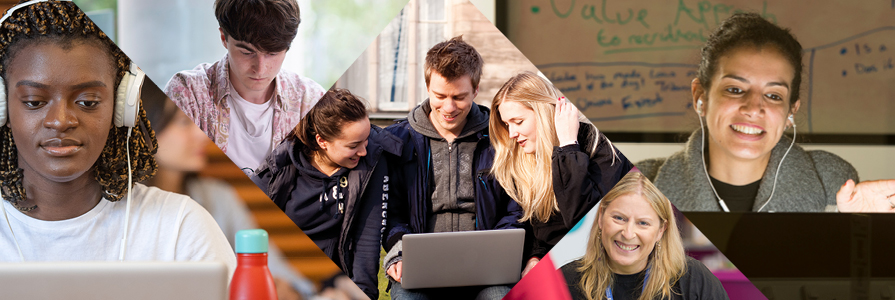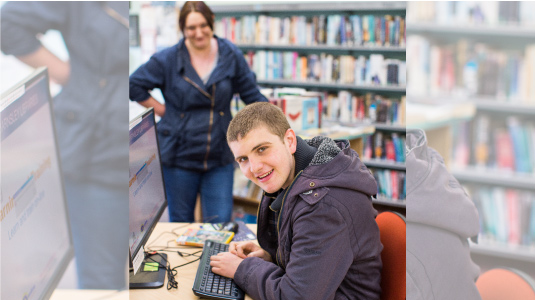SFC news published since 2018. See SFC archived content for earlier news articles.
Catriona Mowat describes how the Student Wellbeing Service at Glasgow Caledonian University became the first in the UK to receive accreditation by the National Autistic Society (NAS).


Photo caption: Image reproduced by kind permission of the National Autistic Society.
If Lockdown is making you feel anxious about your future, socially disconnected from those around you, and frustrated at those who seem unable to follow the rules … spare a thought for the daily lived experience of many of our autistic students and colleagues.
Many of our students on the autism spectrum have always struggled to manage their anxiety levels in new situations and when they don’t know what the future holds. Sound familiar? Many have experienced social isolation and difficulties with social interaction. How is your ‘social life’ these days? Many have found it difficult to organise, prioritise and manage their time. Um, what is it I’m meant to be doing?
The Student Wellbeing Service at GCU recently became the first university service in the UK to receive accreditation by the National Autistic Society (NAS). We were asked by NAS to pilot an extension of the long running scheme to HE, in recognition of our work towards making GCU a more inclusive place for autistic students.
It started in 2010, with the introduction of a Summer Transition Programme, to support new students making the transition from school or college to university. We knew this was a really stressful time for many students, but that it should also be a really exciting time, if we could just identify and address the stressors, and get some support and reassurance in place. The feedback from our students was overwhelmingly positive, with participants feeling more confident and excited to start university. Attending the programme also provided the opportunity to form friendships before university started.
We introduced an in-house specialist mentoring service for our autistic students, and students met their mentors on the last day of the Summer Transition Programme. It worked really well, and meant we could support students immediately, without having to apply for funding first, and we could support those who didn’t yet have a formal diagnosis.
Building on this, the team have developed and delivered a wide range of additional programmes and initiatives: ‘Socialeyes’ (a NAS programme for helping autistic people develop and understand social skills, which we tailored to an HE and GCU context); an employability skills and paid work placement programme (we ran in collaboration with our Careers Service); a Social Group; a Photography Course and exhibition, and a Leaver’s Guide (to help autistic graduates). We have delivered training to our colleagues on teaching inclusively of the needs of autistic students, and we have presented our approach at various forums and conferences, to share what we have learned.
But now in the age of Covid-19, we are having to re-imagine our support for autistic students at GCU. In the short term, we might not be able to do everything we have done in previous years, but we’ll identify the priorities, and make sure we can offer a feasible Summer Transition Programme (on-line for now) and continue to provide Mentoring Support (through video calls and online resources).
Lockdown does offer an incredible opportunity to redesign our teaching, assessment and student support in more inclusive ways. Let’s not overlook the additional needs of our autistic students though. Especially now that we have so much more empathy with their daily lived experience.
Note: Founded in 1962, the National Autistic Society is the UK’s leading charity for autistic people and their families. Our goal is to help transform lives, change attitudes and create a society that works for autistic people. Find out more at: National Autistic Society.

